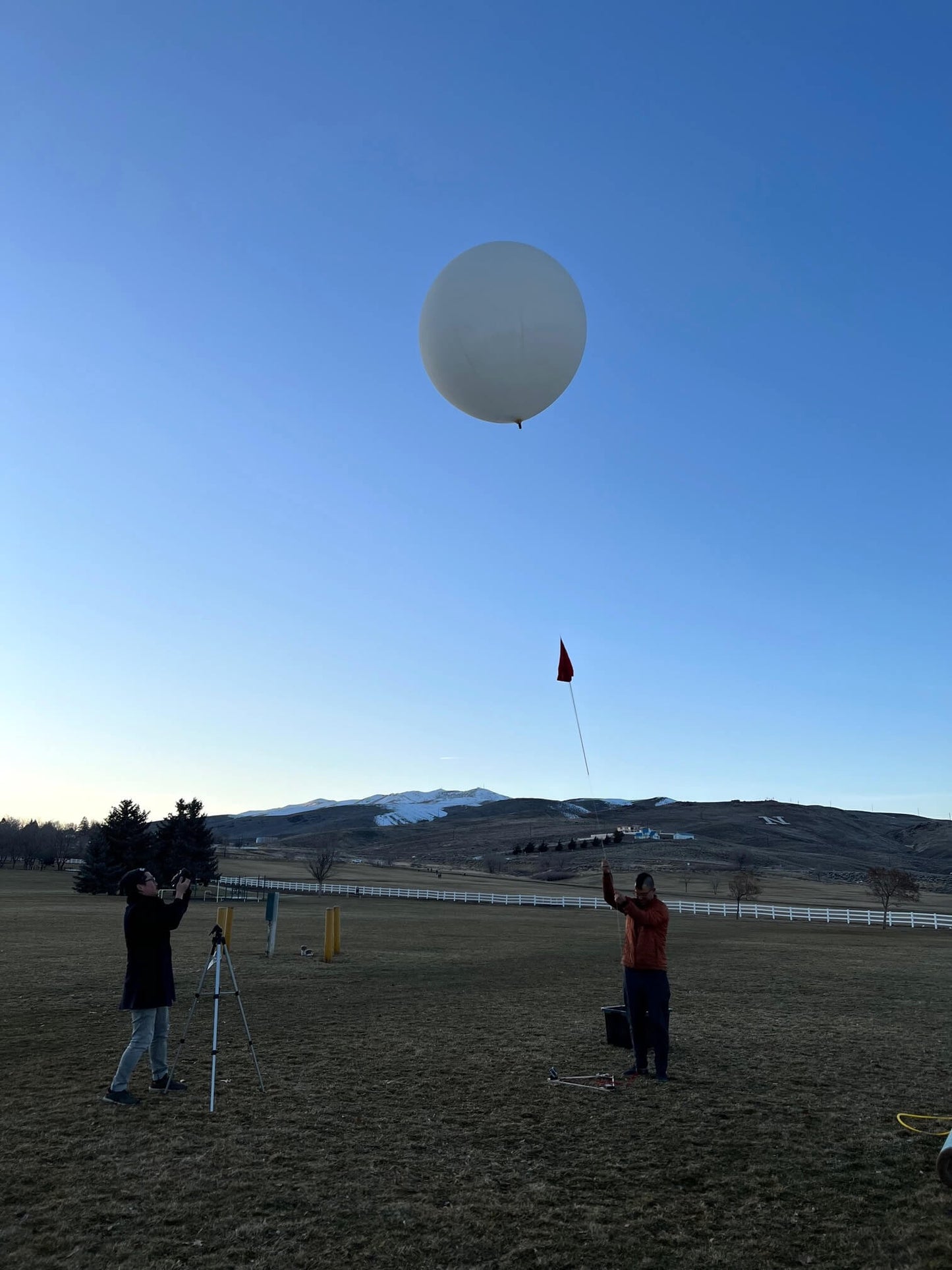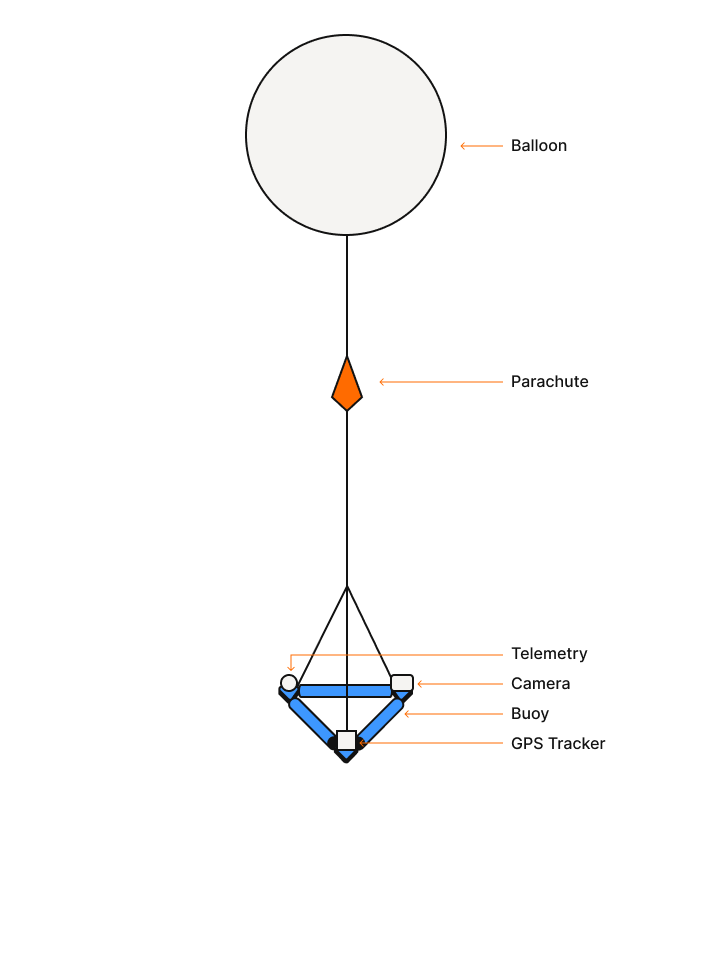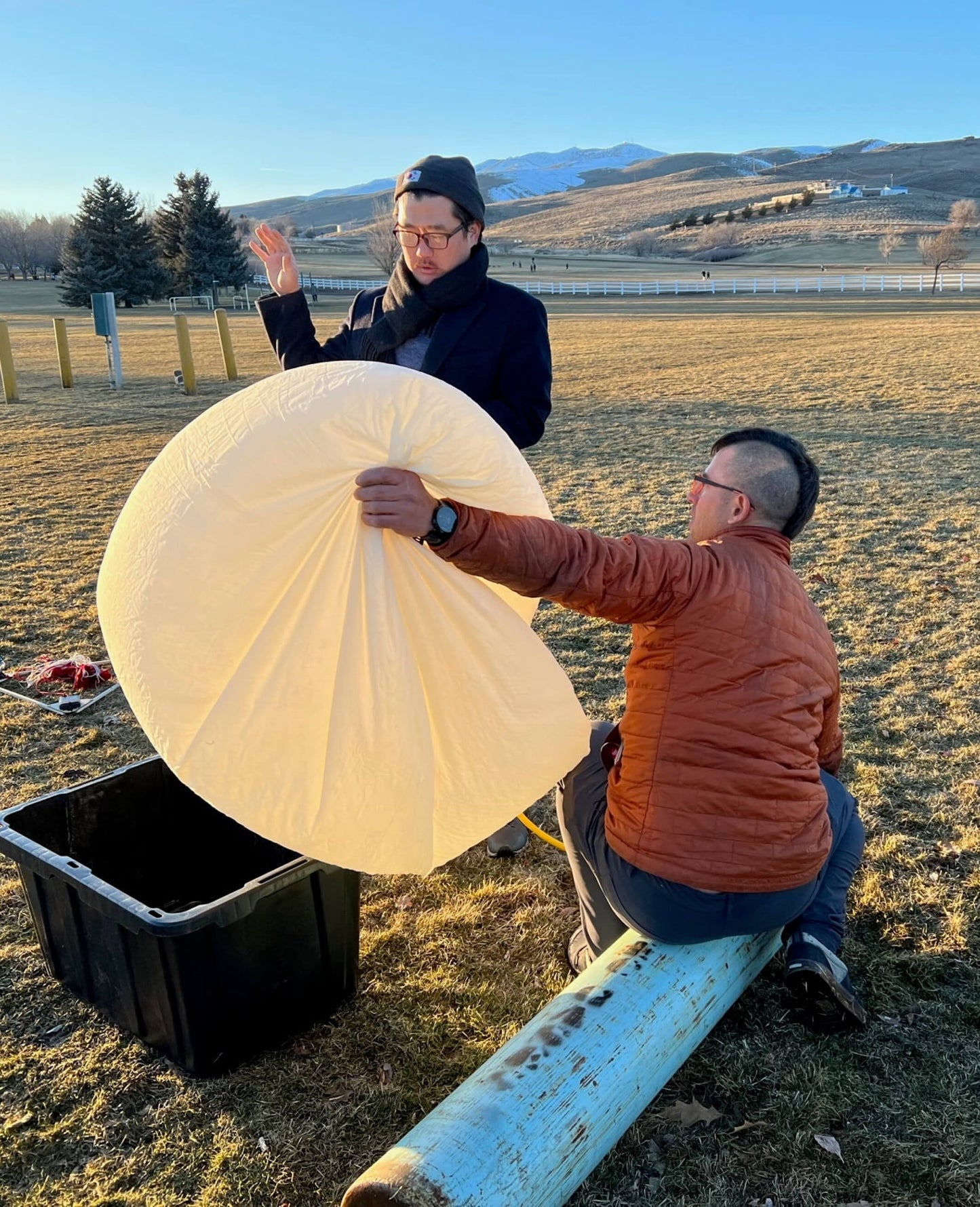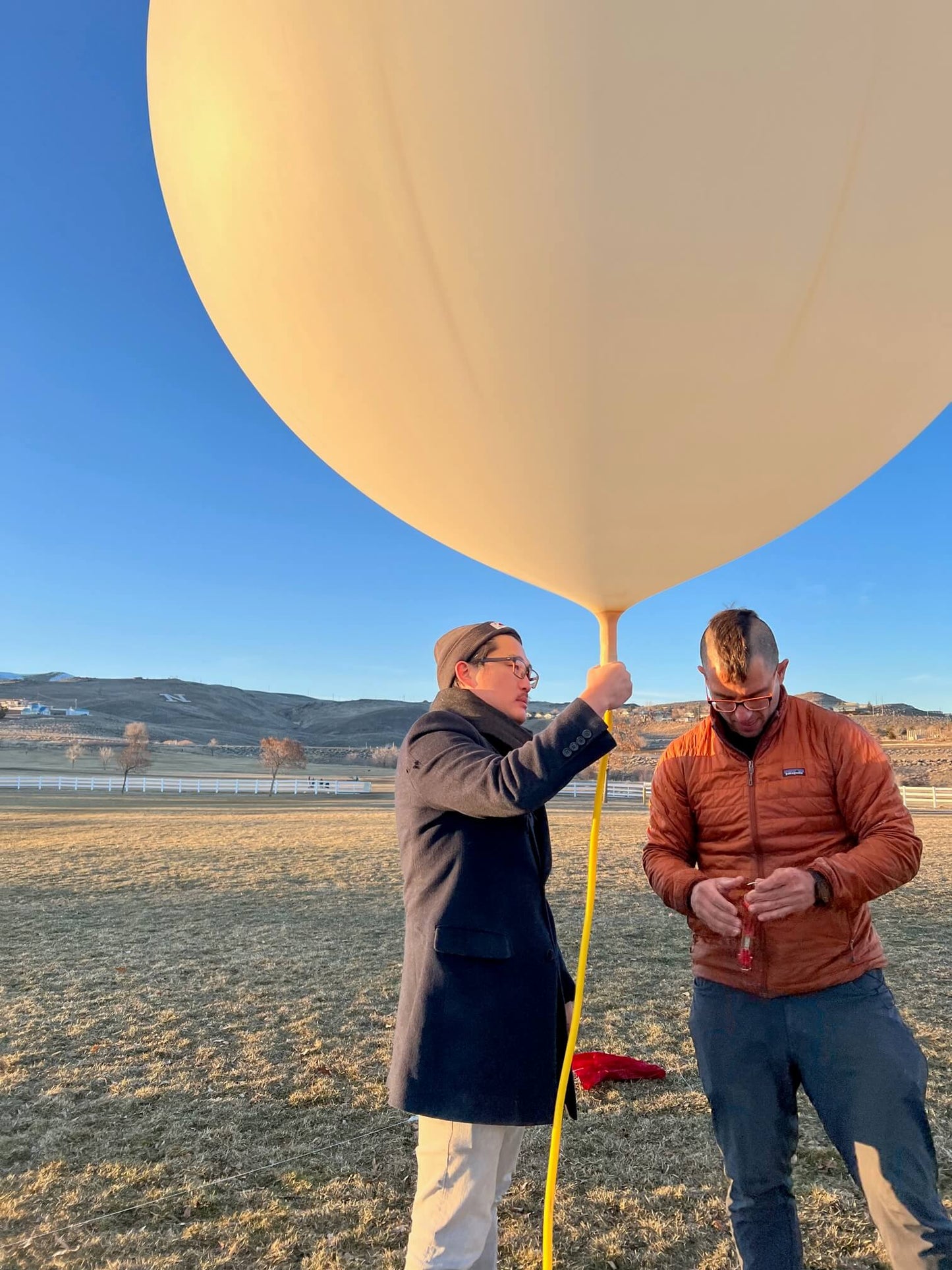One Cooling Credit offsets one ton of CO2 warming for a year. How does one gram of SO₂ offset one ton of CO₂ warming for a year?
Estimates vary, but a leading researcher cites "geoengineering’s leverage is very high — one gram of particles in the stratosphere prevents the warming caused by a ton of carbon dioxide," and “a gram of aerosol in the stratosphere, delivered perhaps by high-flying jets, could offset the warming effect of a ton of carbon dioxide, a factor of 1 million to 1."
Cooling Credits
Couldn't load pickup availability
By purchasing 30 Cooling Credits, your funds will be used to release at least 30 grams of our "clouds" into the stratosphere on your behalf, offsetting the warming effect of 30 tons of carbon dioxide for 1 year. We will share the fulfillment of your Cooling Credit order after deployment via email with the location, time, date, serial number(s) of your Cooling Credits, and video footage. You can also look on your account page for previous orders.
Your purchase is refundable at any time pre-deployment. The current fulfillment time for Cooling Credits is 30 days and 8 hours.
Questions? Please schedule time using this link.
How our balloons work
View full details




-
We should obviously be doing solar geoengineering. We are on track to radically reduce emissions in the coming years but thermal damage will lag our course correction so most of our climate pain is still ahead of us. Why risk destabilizing the West Antarctic ice sheet or melting the arctic permafrost or wet bulbing a hundred million people to death? Solar geoengineering can incrementally and reversibly buy down the risk during this knife-edge transition to a better future. We owe future generations to take all practical steps to dodge avoidable catastrophic and lasting damage to our planet.
Casey Handmer, PhD from Caltech -
It’s a small way I can help with a seemly very large problem! For what it’s worth, $200 offset 20 tons of CO2 is a great win!
Brian Vallelunga, CEO of Doppler -
At some point, you learn about reflective particles as a potential cooling method. The next question would be: 'Is anyone doing this now?' This led to the discovery of Make Sunsets, a team that not only explores solar radiation management techniques but also works to implement them. It's incredibly reassuring to see a group like Make Sunsets pushing the boundaries of scientific research, aiming to create a cooler, more sustainable future for everyone.
Kevin S. Thompson, Austin, Texas




